Iboga Preparation Guide – How to Get the Most From Your Healing Ceremony
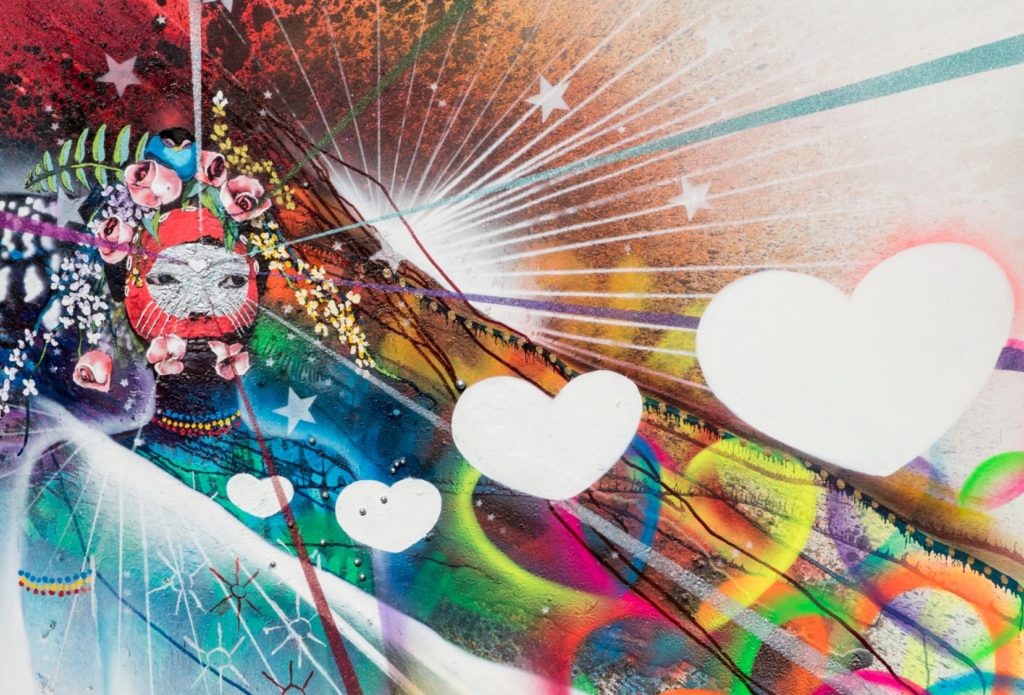
This is an information guide written to help optimize the healing benefits from your iboga healing ceremony. When in doubt, seek medical advice from a doctor.
Iboga, is the common name of a group of perennial shrubs that belong to the Apocynaceae family, which are typically found in the understory of tropical forests in the African Congo Basin. The name usually refers to Tabernanthe iboga, but can also include Tabernanthe manii, or other varieties. In the Central West African rainforest, iboga has a history of traditional use in rituals of healing and rights of passage that stretches back for millennia, making it one of the world’s oldest used plant medicines, in addition to and one of the world’s most powerful psychedelics. Iboga is very different from other plant medicines, because it contains at least 12 psychoactive substances rather than just 1 or 2, making it multiple times stronger than ayahuasca or peyote. In recent years, iboga, and its principal alkaloid ibogaine, have garnered the attention of the medical community for their effectiveness in treating opioid addiction. As a result, increasing numbers of Westerners are being drawn to working with iboga, either for addiction treatment, alternative healing or psycho-spiritual purposes. More and more iboga detox centers, healing retreats, and facilitators are cropping up to meet this demand.
MUST READ 7 Steps to Finding a Qualified Iboga or Ibogaine Provider, Treatment Center or Retreat
Whether you are interested in attending an iboga healing ceremony for spiritual reasons, or if you are seeking relief from addiction or a physical ailment, it’s important to adequately prepare yourself for what will most like be profound, life-changing experience. There have also been some iboga and ibogaine related fatalities, so it is imperative that you follow screening and medical protocols in advance of your iboga healing ceremony. By following the proper protocols, you create the foundation for a safe and deeply healing shamanic journey. Here are some guidelines on how to optimize your iboga experience.
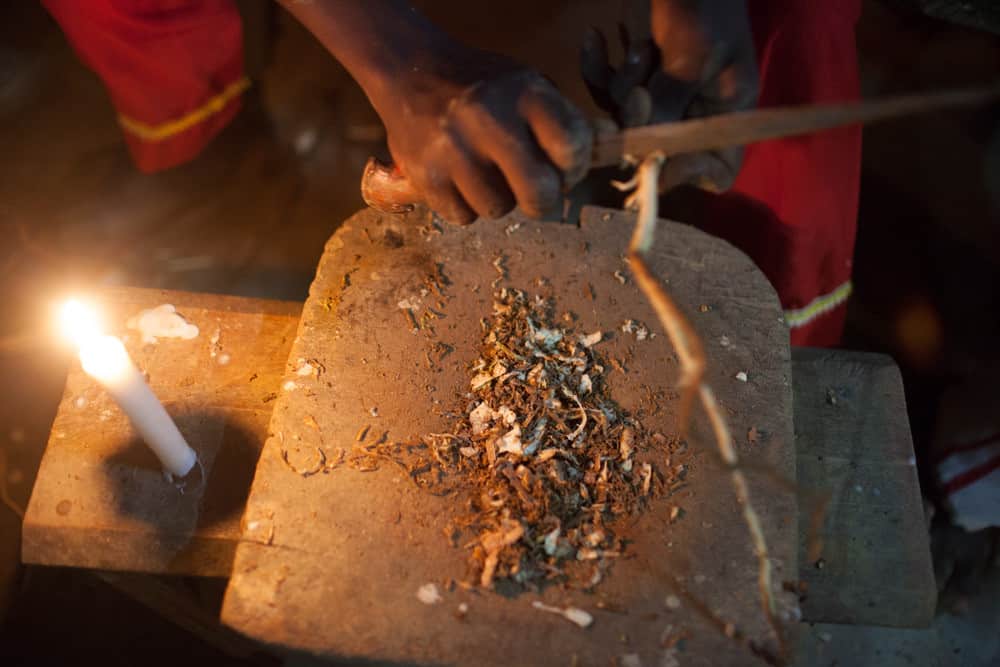
Photo by Swiatoslaw Wojtkowiak
Pre-Ceremony Preparation
In the weeks before the upcoming iboga healing ceremony, you will need to prepare yourself physically, emotionally, mentally and spiritually.
1. Get Your Medical Screening Done as Soon As Possible
Get your EKG and liver panel as soon as possible. There are as small percentage of people that have a specific heart condition, called a prolonged QT rthym, that can put them in a high-risk group depending on how severe it is. IbogaSafe is a great resource on medical safety related to iboga and ibogaine. Most of the deaths related to iboga or ibogaine were due to the complications related to high-risk addiction patients who were taking higher “flood dose” of the iboga or ibogaine, which is much more than a person would take in a psycho-spiritual ceremony with the “holy wood”.
MUST READ Iboga Vs Ibogaine – Which Is Better for Addiction Treatment?
2. Follow the Dietary Guidelines
Avoid alcohol or any psychoactive substances at least 2-3 days before your iboga ceremony, the longer the better. Cut back on stimulants as iboga has stimulant properties. Although, not required, avoiding anything that will put stress on your liver and adrenals will only enhance your overall experience.
Avoid heavy foods such as those high in fat content or dense meats on the day preceding and day of, as the lighter the body feels, the better your experience will be.
If you tend to get constipated, start some preventative care in advance of the ceremony, as iboga can cause mild constipation. I recommend taking Triphala on an empty stomach to assist digestion. Probiotics are also recommended.
*Please note do not take laxatives that contain stimulants, as that can be contraindicative.
3. Take Neurological Performance Boosters
Boost the liver, adrenals, and mineral reserves in advance. Taking an IV vitamin drip with saline and glutathione one week before your iboga ceremony will give you the highest super charge. Reishi mushroom supplements can reduce liver stress and boost antioxidant levels. Shizandra reduces liver heat and is soothing for the heart.
Minerals help restore the balance and prevent dehydration. Magnesium is assists in overall relaxation and can be taken pre, during, and post. Quintessential are sea minerals that are bio identical to the plasma in the blood and can be taken pre, post, and during the ceremony as needed.
Magnesium is essential for nervous system and maintaining electrolyte balance. You can take up to 250 mg a day. The liquid form is much easier on the digestive system. Some experience uncomfortable gas and bloating from certain forms of magnesium. I recommend the Eidon Ionic Magnesium because it is the most gentle on the stomach.
4. Expand Your Understanding of Dis-ease & Healing
Be open to experiencing healing on a holistic level that includes not only your physical well-being, but your emotional and spiritual health. In many tribal cultures it was believed that one of the keys to health in the community was for each person in the community to undergo a rite of passage, to perform a vision quest or pilgrimage when they came of age. This tradition was lost in Western culture and may be the reason why our modern civilization is plagued with psychological illness. In Bwiti culture, iboga was consumed as part of an initiation rite to help you face your darkness and fears, while receiving guidance from your ancestors.
5. Reframe Your Understanding of Fear & Suffering
The Bwiti believe that the only suffering that you experience with iboga medicine comes from your own ego. You can choose fight the medicine and continue the path of suffering; if you do that is a reflection of your approach to life. The suffering you experience during the journey is not created by the medicine, it is your ego projecting future suffering and therefore resisting what is happening the present moment. This medicine teaches you how to die, as well as how to truly live, by showing you how to navigate the depths of your psyche and heal the trauma that has been afflicting you, creating stories of limitation, since the moment you were born.
MUST READ Iboga Medicine – Psychedelic Healing the Bwiti Way
While consuming a psychedelic plant medicine that some have said is 100 times stronger than ayahuasca might seem like the scariest thing on the planet, iboga doesn’t have to be scary at all. Iboga is the vehicle that allows you to sit with yourself long enough to realize that thing you are afraid of is an illusion. This is the medicine that will wake you up to the holographic nature of life and awaken you to your avatar self.
6. Exercise & Stretch
If you are incredibly active, you might consider taking down your daily marathon or CorePower one notch during the days leading up to your journey. Focus on more yin/restorative activities such as yoga, stretching, hiking.
Anything that increases your flexibility is going to be helpful. Gentle yoga is the best. Try get in some long, juicy stretches beforehand.
It is beneficial to get a good massage to work out any kinks since you will be lying for extended time periods.
The most important thing is rest up as much as you can beforehand. Get in some naps and try to avoid any late nights the few days up to the ceremony.
NOTE: Do not take herbs any less than 24hrs before ceremony, as Iboga shamans say the Iboga does not like other medicinal herbs, psychoactive substances (including cannabis), and supplements to be in the system while it is working.
During the Ceremony
An iboga ceremony typically lasts 24 hours, with the most intense part of the journey lasting 8 hours. Some people may not be able to fall asleep up to 48 hours after they have taken the medicine.
A traditional iboga initiation is led by a Nima, a Bwiti shaman. In the Bwiti tradition, one does not become a Nima by mastering how to facilitate an iboga ceremony from a technical standpoint. It is easy to learn how to play music or to prepare the fire or to lead someone on a guided journey. One cannot graduate to becoming a Nima until they have become completely whole themselves. The medicine will tell the Nima when the initiate has graduated. Many Nima have 10 to 20 years of experience working with the “holy wood”, which is equal to the level of study of a modern doctor.
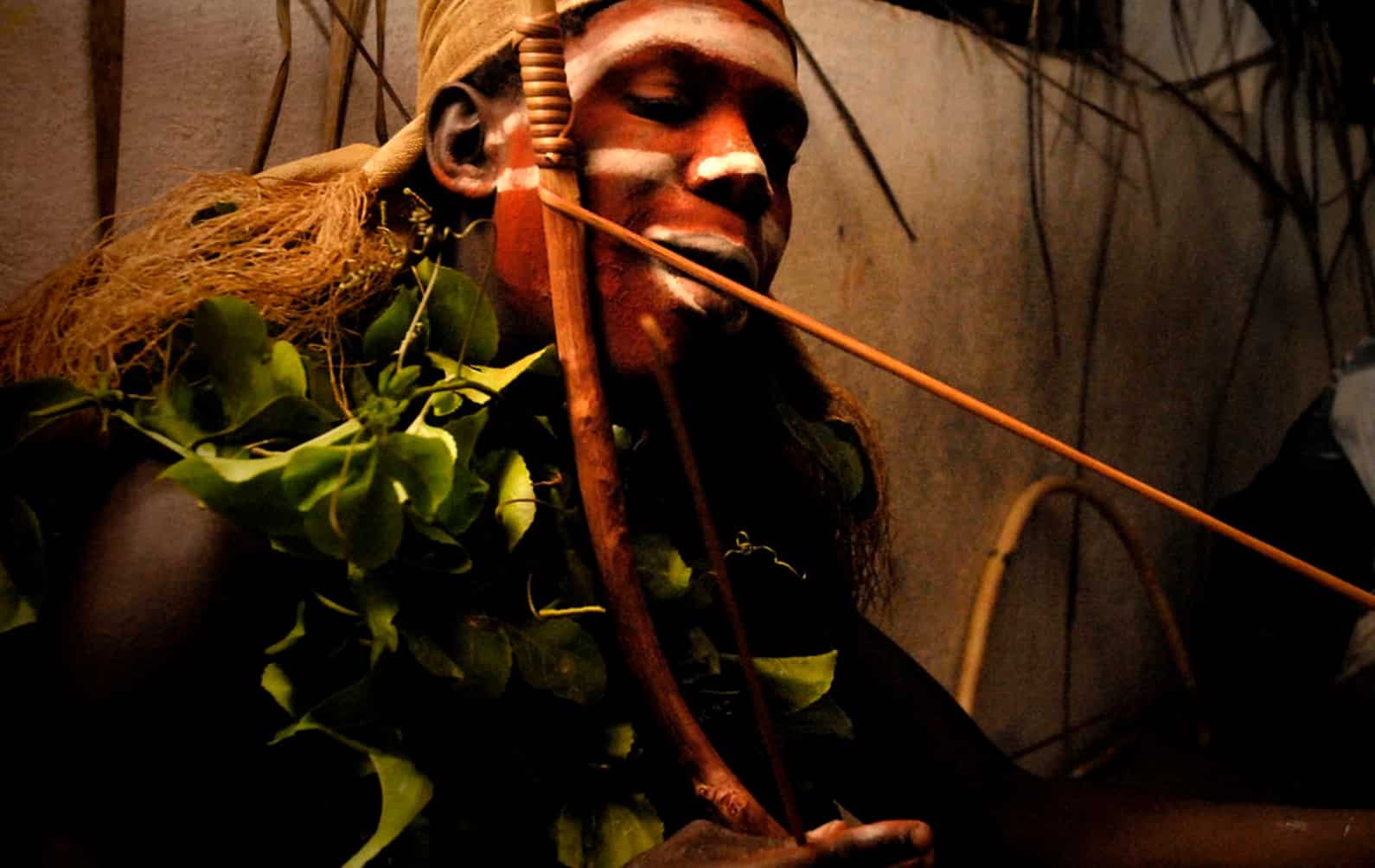
Photo by Bourgois Xavier
The music in ceremony is created using a variety of wisks, brooms, and one of the oldest instruments in recording human history; the Mougongo. According to Uwe Maas of Süster Strubelt, the polyrhythms in the Bwiti music helps to regulate one’s sense of time and heartbeat, assisting with psychedelic visions.
Many people find the psychedelic experience so intense that they are unable to move. Expect to spend many hours lying still. Iboga medicine also is known to induce nausea, physical discomfort and purging. Here are some guidelines to help you optimize your iboga journey.
1. Set Your Intention
Meditation and intention are essential to guiding your journey! This is a deep soujourn into your inner psyche and having questions prepared will help to drive the journey and visions. Practice guided imagery of surrendering and letting go of who you are for the purpose of being psychologically and spiritually cleansed and even reborn. Be flexible with expectations about the experience because it is vastly different for all people. Iboga causes dreamlike visions but not for everyone. Although there is little to no medical risk, the experience can induce a sense of fear and a virtual or simulated near death experience. Psychologically surrendering versus holding on can minimize fear during the experience.
2. Practice Meditation
Remember to breathe! If the iboga experience feels overwhelming, slow down and focus on your breath. Experienced meditators will have an easier time maintaining calmness and balance, even during difficult times in the journey. If you have past experience with Vipassana meditation, you will be ahead of the game. The iboga experience is like a long meditation where the lines of reality and the dream may shift for you in a positive way.
3. Use Essential Oils
Essential oils are beneficial for calming and grounding. Lavender can be applied to the body for cooling and soothing. Bring some coconut oil or massage oil with you. You may become sensitive to synthetic fragrance and smell, so scented lotions are not recommended.
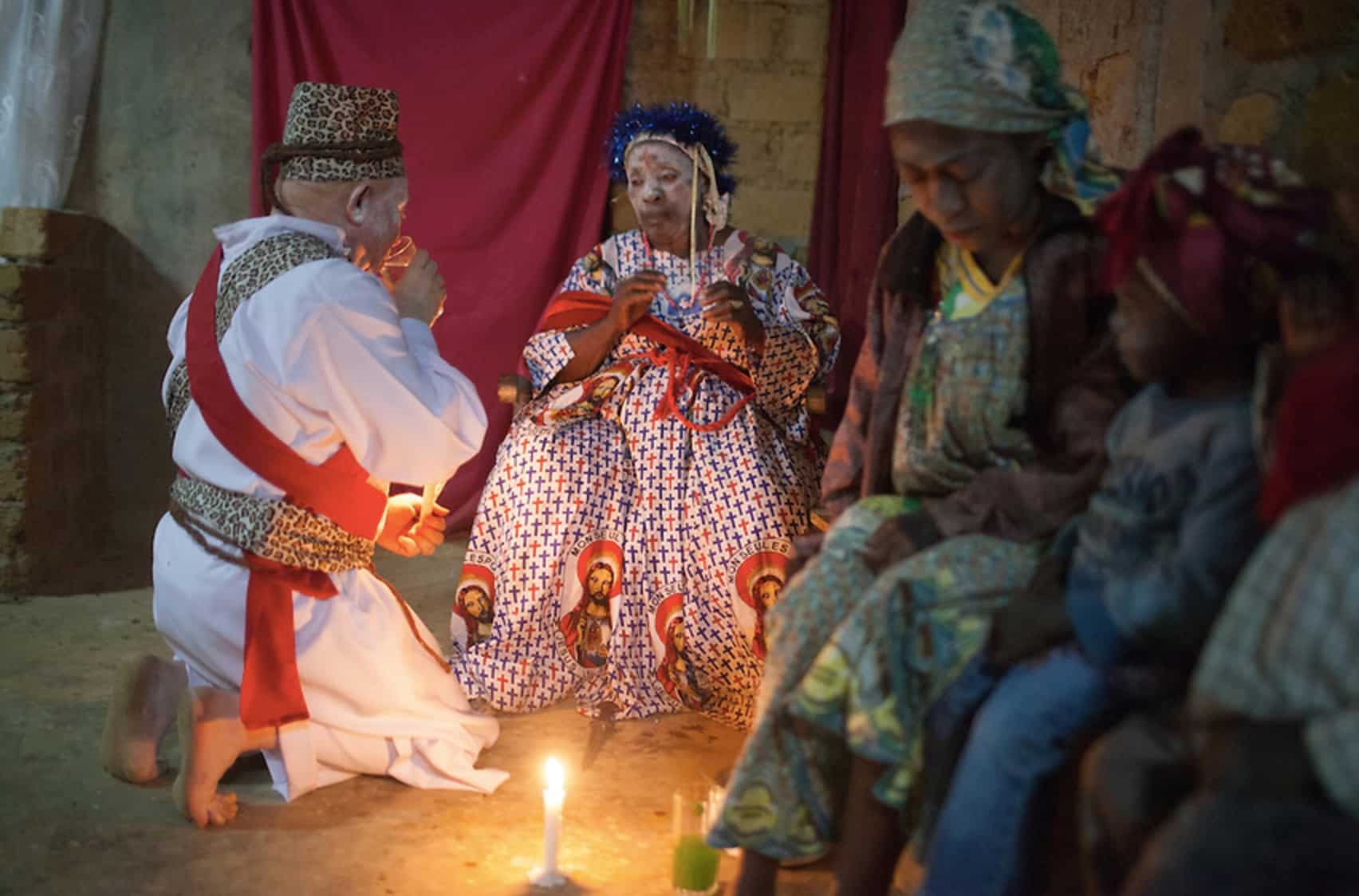
Photo by Swiatoslaw Wojtkowiak
After the Ceremony
The liver and adrenals can take a hit from the lack of sleep. Studies show that an effect of the medicine is an increase in ATP which fuels the mitochondria, so you might feel a little tired after but you will get a huge boost following.
CBD helps calm the nervous system. I really like CBD Hemp Oil which does not contain any THC (the psychoactive part of cannabis). Recent studies have shown CBD oil’s impact on inflammation and pain in the body. If you are a fan of THC, it’s fine to take. However, taking smaller doses to integrate your experience is recommended.
Post-Ceremony Integration
This sacrament can release old trauma, and shift one’s understanding of self and the divine. Thus, it is a good idea to set aside time for self-reflection and meditation. Take it easy for the first 1-2 weeks afterwards as you will be sensitive to smell, sound, and intense environments.
Bring a journal or voice recorder as you will likely experience increased awareness about your life, gain new insights and may wish to capture these. In the first part of the journey you will be fully immersed in the experience, however during the later stages or the morning after your iboga journey it will be progressively easier to record insights. Soak in your experience and write about it if you can, to retain as much as possible.
When you arrive home have a trusted friend, coach, counselor or spiritual advisor to process the experience with. This sacrament can open up your psychological and energetic field so it is advantageous to surround yourself with people who are loving and at a empathetic in the days following. For example, avoid large crowds.
Some people report difficulty sleeping the nights following and melatonin supplementation (~3mg at bedtime) or GABA can be beneficial in this regard.
It’s important to note that iboga stays in your system for at least several weeks, so avoiding alcohol and stimulants will prolong the benefits of this work. It is best to avoid alcohol at least one month post, so you can fully integrate your experience. If you maximize the purification benefits, stay away for 3-6 months, you may see even more profound shifts in your life than the actual ceremony itself. Many report not even having a desire to drink, as the candida or emotional attachment tends to be completely eliminated by the medicine, reducing any cravings for sugar and carbohydrates.
NOTE: If you plan on taking doing other ceremonial plant medicines, give at least a month in between for recovery and integration of your experience. This powerful plant spirit is still providing healing months after the ceremony and other medicines can interfere with the process. Many people report high levels of sensitivity to other psychoactive medicines post ceremony. Use caution specifically with recreational use of psychoactive medicines.
Who Should Not Take Iboga
Iboga use can be dangerous if you have the following conditions:
- Seizures/ Epilepsy
- Cardiac issues (arrhythmias, abnormal heart rate, bradycardia, prolonged QT interval, embolism, history of heart attack)
- Major respiratory conditions (emphysema, chronic obstructive pulmonary disorder)
- Impaired Liver or Kidney Function
- Pregnancy
Please let your facilitator know if you:
- Are currently on SSRI or MAOI medications
- have history of mania (as this sacrament can precipitate manic symptoms)
- have active panic attacks
- have neurological or cardiac/heart conditions
Featured Art by Chor Boogie

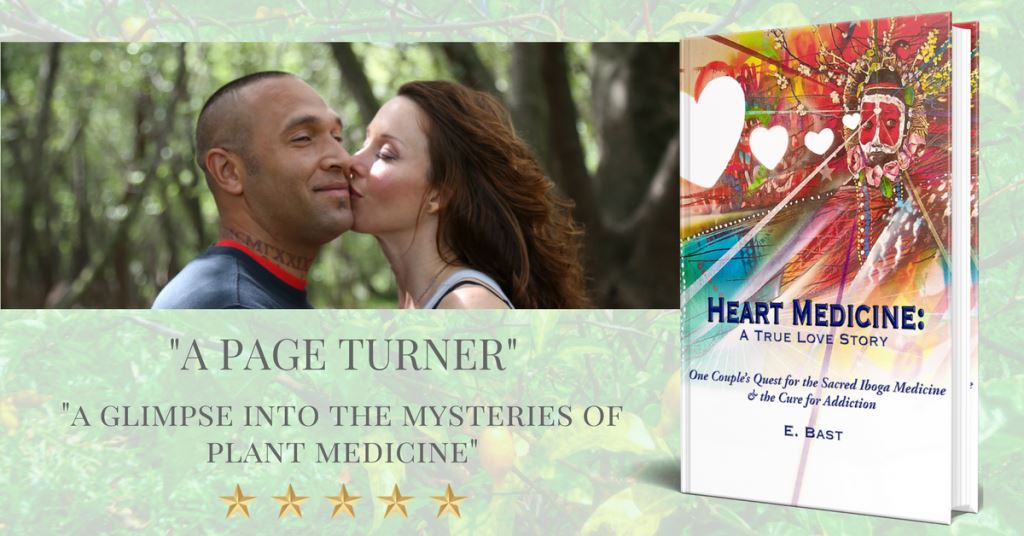
Thanks for the nutritional support section!
Hello,
I like this blog and iboga plant use medicine for addiction people treatment and therapy and iboga is very useful plant thank you so much.